Canada Milk-vetch, Canadian Milkvetch, Morton's Canadian Milkvetch
Astragalus canadensis var. mortonii
Synonym: Astragalus mortonii
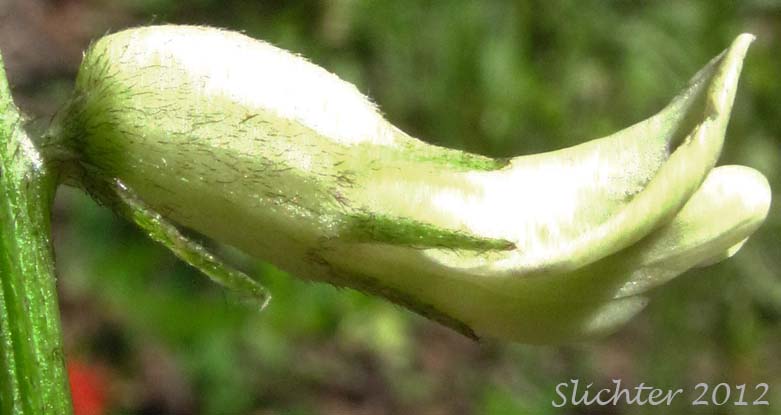 -
- 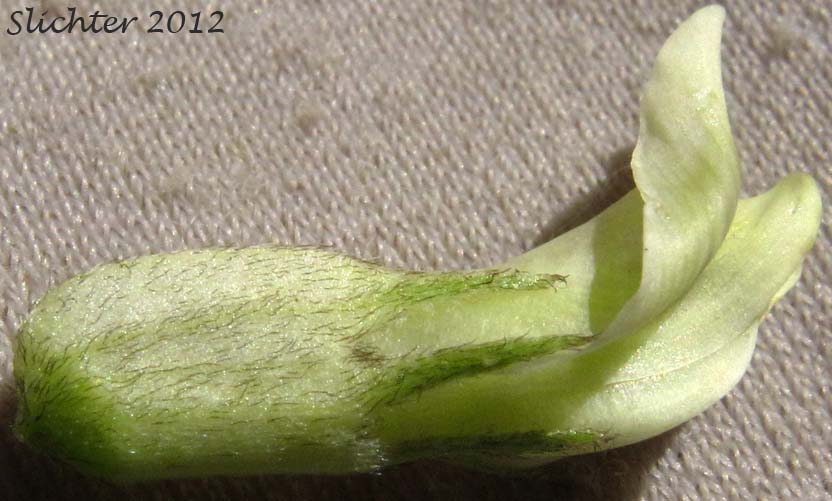
Close-up images of the flowers of Morton's canadian milkvetch as seen in an old clearcut along the Umatilla Rim Trail about two-thirds of a mile north of the junction with the Lake Creek Trail, Umatilla National Forest........July 24, 2012. The calyx lobes are about equal in length and are long tapering. Note the abundance of blackish hairs on the calyx tube and especially onto the calyx lobes. Similar var.
brevidens has much fewer blackish hairs on the calyx and has shorter, broader and subequal calyx lobes.
Characteristics:
Canada milk-vetch is a robust perennial wildflower with ascending to erect
stems from 15-100 cm high arising singly or several together from spreading
rhizomes. The leaves and stems are covered with short, fine, appressed hairs
or may be green and glabrous. The pinnately compound leaves are 5-35 cm long
with 13-35 leaflets measuring 10-45 mm long and broadly lanceolate, oblong,
ovate or elliptic in outline.
The erect flower stems are 4-22 cm long. The densely flowered racemes elongate
to 2.5-16 cm long and 2.5-3.5 cm wide when mature and bear up to 150 flowers.
The calyx is bell-shaped but assymetrical at its base (See photo above.) and
measures 4.5-8.5 mm long with awl-shaped to triangular teeth from 1-4 mm long.
It is covered with whitish to black hairs that are appressed to the calyx tube
or spreading. The petals are greenish-white or whitish-yellow or may be purple-tinged.
The moderately recurved banner is 12-17.5 mm long while the wings are 10-15
mm long and the obtuse keel is 10-13.5 mm long. The erect, sessile pod is oblong-cylindric
or ellipsoid in shape with an abruptly rounded base. The pods measure 8-20 mm
long and 3-5 mm wide and are covered with minute, appressed hairs or are glabrous.
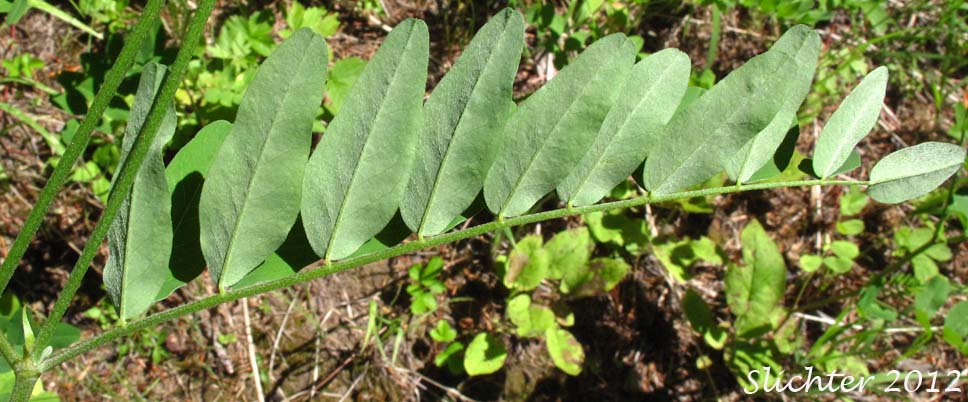
The pinnately compound stem leaf of Morton's canadian milkvetch as seen in an old clearcut along the Umatilla Rim Trail about two-thirds of a mile north of the junction with the Lake Creek Trail, Umatilla National Forest........July 24, 2012.
Habitat:
Canada milk-vetch may be found in vernally to permanently moist places along
streams, in prairie or in woodland.
Range:
Canada milk-vetch may be found from northern British Columbia south to central
California, central Nevada and southwestern Utah. It is found eastward to James
Bay, Ontario and New England and south to South Carolina. It is found south
through the Rocky Mts. to north-central New Mexico and eastward to southeastern
Texas.
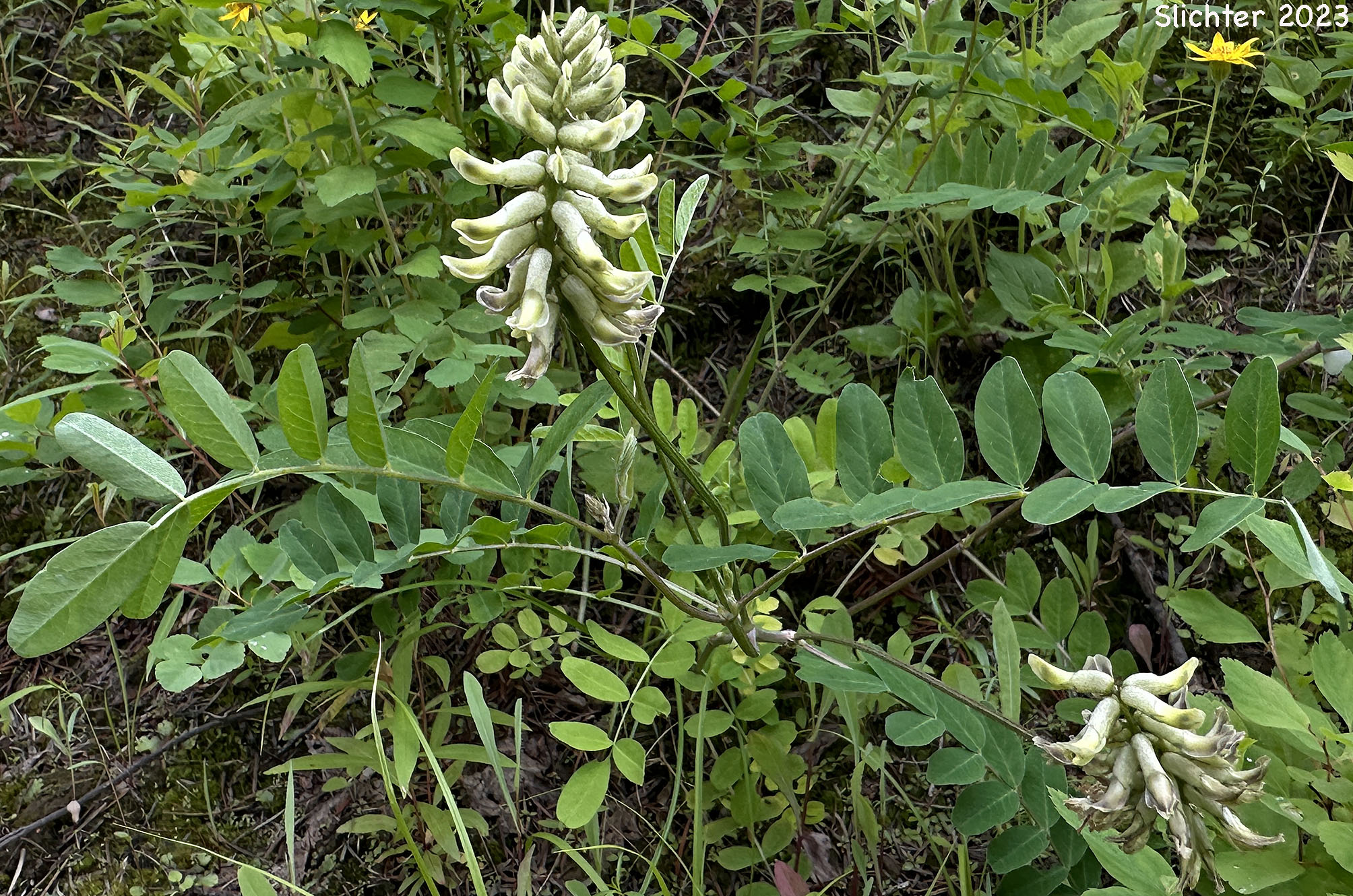
Canada milk-vetch observed in woodlands near the locked gate for spur road 160, about one-quarter of a mile uphill from the junction with Forest Road 41, Umatilla National Forest......June 17, 2023.
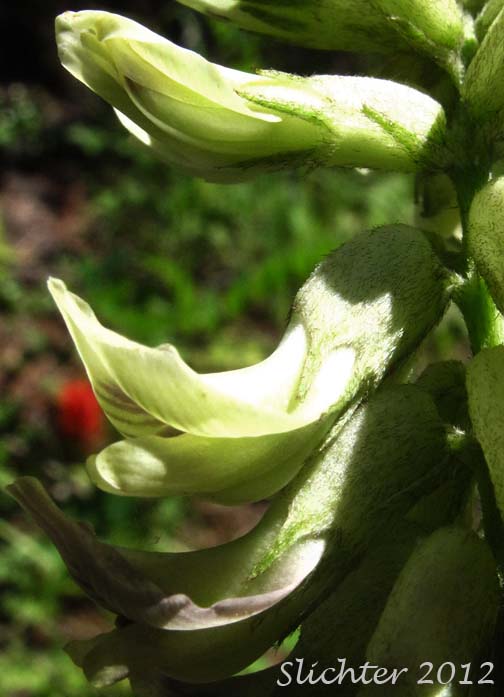 -
- 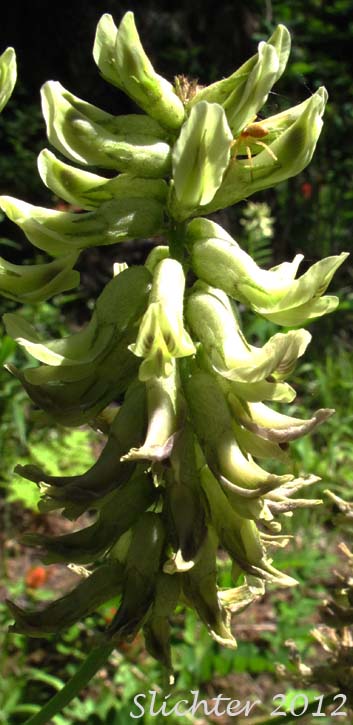
Morton's canadian milkvetch as seen in an old clearcut along the Umatilla Rim Trail about two-thirds of a mile north of the junction with the Lake Creek Trail, Umatilla National Forest........July 24, 2012.

The photo above shows a close-up of the pinnately compound leaf of Morton's canadian milkvetch with its ovate-lanceolate leaflets. Photographed along the Hurricane Creek Trail, Eagle Cap Wilderness........June 26, 2004.
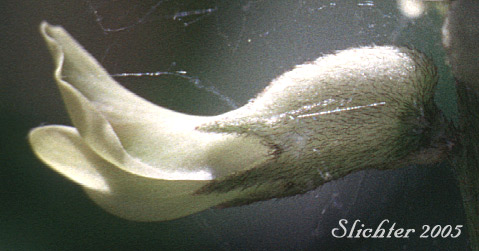
The photo above shows a close-up of the flower of Morton's canadian milkvetch. Note the whitish-yellow corolla and assymetrical calyx tube covered with dark hairs. Photographed along the Hurricane Creek Trail, Eagle Cap Wilderness.........June 26, 2004.
Paul Slichter
 -
- 